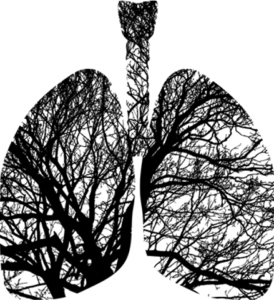Today, the Canadian Association of Radiologists (CAR) in partnership with the Canadian Society of Thoracic Radiology (CSTR) is pleased to announce the initiation of a national project focused on the development of a new national lung cancer screening accreditation program and specialized education in CT lung cancer screening for radiologists. This project has been made possible through collaboration and financial support from the Canadian Partnership Against Cancer (the Partnership).



Organized screening for lung cancer will save lives
According to the Canadian Cancer Statistics: A 2020 special report on lung cancer, lung cancer is the most commonly diagnosed cancer among Canadians and is projected to be the leading cause of cancer death in Canada in 2020, accounting for 1 in 4 of all cancer deaths. The five-year net survival for lung cancer is among the lowest of all types of cancer. Organized lung cancer screening programs can save lives for those with a high risk of this disease. Earlier detection and ensuring universal and equitable access to screening programs is key to improving survival and mortality.
Supporting future organized lung cancer screening programs
Many medical centres in Canada lack the resources to implement organized lung cancer screening programs even when there is equipment and physician capacity. As a national organization with a long history in education and quality assurance, the CAR has the resources to develop a lung cancer screening accreditation program building on the experience of the CAR’s Mammography Accreditation Program (MAP). The new accreditation program will offer technical standards for peer review, evaluation, and oversight of medical imaging facility staff qualifications, equipment performance, quality control and quality assurance programs, image quality and radiation dose. The standards will promote uniformity across all provincial screening programs and will be updated continuously in order to adapt to practice changes and the emergence of new evidence.
Gap in specialized education in lung cancer screening
Throughout Canada, only a small percentage of radiologists have specialized education in thoracic imaging, and these radiologists are concentrated in academic centres. While opportunities for lung cancer screening education are available in the US, access is limited, and objectives are at times discordant with our single-payer approach in Canada. To maximize screening efficiency, safety, and cost-effectiveness, radiologists must understand screening within the Canadian context. This is particularly important with respect to mitigating downstream investigation costs and exposing individuals to unnecessary radiation and medical procedures.
The CAR will deliver educational content to all general and subspecialty radiologists as well as residents and fellows whose work involves interpreting lung cancer screening CT through RAD Academy, CAR’s online learning management system and various workshops, to help guide therapeutic decision-making and improve clinical outcomes. Education would also pertain to radiologists who wish to become involved in provincial lung cancer screening programs.
Gap in CT standards and accreditation program for lung cancer screening
There is a gap in CT standards and accreditation program for lung cancer screening in Canada. Most provinces do not provide a comprehensive program to monitor CT radiation doses. As highlighted in the Partnership’s Lung Screening in Canada: 2019/2020 Environmental Scan, there are currently no organized lung screening programs in Canada. However, some provinces and territories have initiated lung screening implementation pilots. The CAR plans to develop new CT standards that will be leveraged into the lung screening accreditation program providing a much-needed common operational framework for CT utilization in Canada. The CAR is well positioned to provide these standards and to assist individual programs in maintaining quality.
“Lung cancer screening accreditation and CT standards are crucial to ensuring the successful implementation of organized lung cancer screening programs across the country. The Partnership is supporting and funding jurisdictions to establish effective screening programs to serve people at high-risk of lung cancer. We welcome this partnership with the CAR and the CSTR, which will help ensure that as screening programs become available, people across Canada will benefit from the same high-quality standards and specialized clinical knowledge irrespective of where they live. We are thrilled to have the radiology community in Canada leading this work.”
Dr. Craig Earle, Vice President, Cancer Control, Canadian Partnership Against Cancer
Starting in January 2021, the CAR and CSTR will be bringing together two working groups focused on lung cancer screening accreditation and education to provide leadership and oversight of this project. These working groups will work in consultation with allied health professionals and patient advisors associated with lung cancer screening such as the Canadian Association of Medical Radiation Technologists, Canadian Organization of Medical Physicists, College of Family Physicians of Canada, Canadian Thoracic Society, Lung Cancer Canada, Canadian Partnership Against Cancer, and the Canadian Association of Provincial Cancer Agencies.
“The CSTR is honoured and eager to collaborate with the CAR and the other partners/patient advisors that will be involved with our working groups to ensure that lung cancer screening CT performance and interpretation is standardized across the country. It is through the delivery of high quality and uniform lung cancer screening that we can obtain similar results to the trials that have shown its value and thus improve lung cancer survival.”
Dr. Carole Dennie, Radiologist at the Ottawa Hospital and President, CSTR
Overall, the goal of this project is to develop a lung cancer screening accreditation program to offer the best possible standards for optimal patient outcomes and to provide high quality lung cancer screening education to radiologists across Canada.
For more information on lung cancer screening from Canadian Partnership Against Cancer visit their website.

